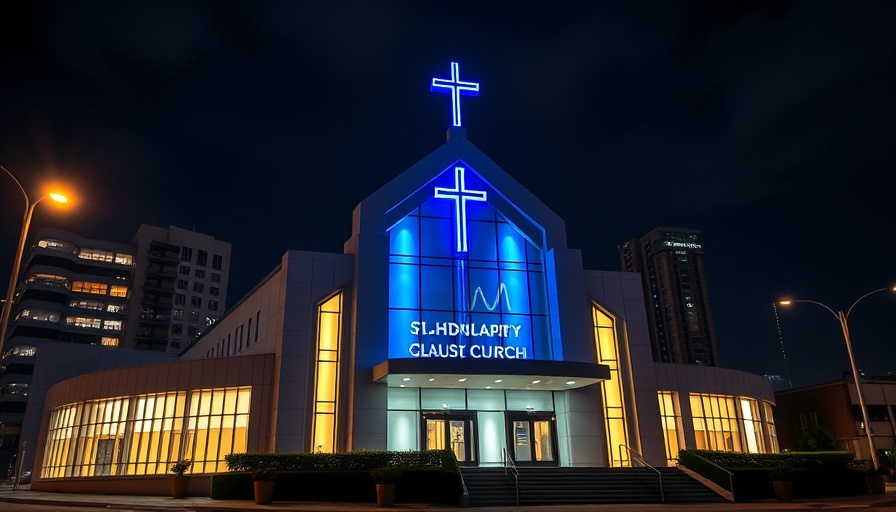
A New Era of Evangelical Influence in Omaha
Hank Kunneman's commanding presence resonates through his church, the Lord of Hosts, where congregants are not just participating in a religious service, but also engaging in a political movement. Over recent years, this Omaha-based church has transformed from a niche community group into a center of significant evangelical and political influence, positioning itself firmly alongside the nationalist rhetoric that some attribute to former President Donald Trump.
The Rise of Kunneman’s Church: A Case Study
What is notable about Kunneman's approach is how it merges faith with fervent nationalism. The energetic Friday night services have attracted notable figures within the evangelical sphere, drawing a following that prophecies align with Trump's reign. This intertwining of faith and politics has helped Kunneman build a strong base that reflects a growing trend where religious spaces are transforming into political arenas.
From Congregation to Commercial Power
As Kunneman’s popularity soared, so did the church’s financial power. With an impressive portfolio boasting $14.9 million in real estate acquisitions, the Lord of Hosts church is not only a spiritual sanctuary but also a growing economic player in the community. This growth is emblematic of a broader trend within the evangelical community, where churches are increasingly investing in real estate as a means to expand their influence and serve their congregants.
The Cultural Shifts Within Evangelicalism
Matthew Taylor, a scholar in religion and politics, pointed out that Kunneman and his ministry have been sweeping the evangelical narrative, proposing a shift in traditional norms. Their advocacy for a winner-take-all electoral system in Nebraska is a direct reflection of their commitment to changing political landscapes to reflect their beliefs. This push has sparked discussions among religious leaders and followers alike about the separation of church and state and the moral implications of their advocacy.
Community Response and Broader Implications
The rapid transformation of Kunneman’s church raises questions about the implications for both local communities and national politics. As this church attracts worshippers, often older and from conservative backgrounds, the demographic shift suggests an alignment of faith and national identity that is gaining traction. It is a sentiment that resonates with many amid a politically charged environment.
A Glimpse into the Future of American Evangelicalism
As religious institutions like the Lord of Hosts continue to amass power, the future of American evangelicalism seems heavily intertwined with political aspirations. A critical question emerges: how will this blend of faith and politics shape the church's mission and its role in society? Following the trajectory of Kunneman’s church, it is clear that the line between sacred spaces and political activism is becoming increasingly blurred.
Understanding the Real Estate Boom
The rapid accumulation of real estate by Kunneman's church isn't just about expanding physical space; it represents a strategic effort to embed the church deeper into the community. Real estate investments can also provide a sustainable model for funding church programs while reinforcing its presence within the local political landscape.
Concluding Thoughts: The Intersection of Faith and Politics
The growth of the Lord of Hosts church underlines a significant cultural movement within evangelicalism that cannot be ignored. As Kunneman's voice grows louder in Omaha, it prompts broader discussions about the role of faith in shaping political narratives. For those observing this transformation, there remains much to consider regarding the implications of religion becoming a powerful force in real estate and national politics.
 Add Row
Add Row  Add
Add 




 Add Row
Add Row  Add
Add 

Write A Comment